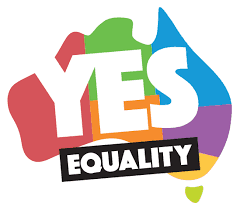Wedding Speech Dos and Don'ts
Whilst being asked to deliver the all-important wedding speech is, of course, an enormous honour, it can also be unbelieveably stressful. What if you’re not interesting enough? Optimistic enough? Funny enough? Poignant enough?
The good news is that severe public-speech-related jitters are incredibly common- studies have shown that public speaking is the top reported fear among adults, even beating out death itself. Bizarre. But a great wedding speech doesn’t have to be the cause of anxiety. Just follow these simple sets of ‘dos and don’ts’ for a fail-safe speech that will absolutely delight the bride and groom.
Do:
Plan your speech. A certain amount of spontaneity is definitely allowed, and you certainly don’t have to write your speech out word-for-word, but you do want to have all of the main points and examples planned out in your head. Before the big day, practice your speech for a friend to make sure you’re comfortable. Wedding photographers everywhere will tell you that some of these spontaneous moments provide some of the most lasting and memorable pictures in your wedding album.
Don’t:
Drink too much before your speech! At most wedding receptions there’s usually no shortage of alcohol – which can seem like a quick and easy way to calm your nerves; however, this method doesn’t usually end well. Have a social drink if it’s appropriate, but save any “heavier” drinking for after you’ve put down the microphone.
Do:
Introduce yourself to the audience. Remember that there’s likely a large group of attendees who have no idea who you are. Avoid the temptation to jump right into the body of your speech, and take a second to mention your name, and relationship to the bride and/or groom.
Don’t:
Tell embarrassing stories. Especially if you’ve known the bride or groom for a very long time, you might be tempted to wax nostalgic about the time the groom ended up locked out of his apartment, completely naked – but these stories aren’t usually received as well as they’re meant. Save the embarrassing anecdotes for private conversations, not for the stage.
Do:
Keep it brief. Considering how much you’ve likely sweated over your speech, it can be difficult to remember that it’s actually not the main event at the wedding reception. Also remember that time feels different when you’re under pressure; so your experience at the microphone might not accurately reflect the experience of a listener. When in doubt, shorter is always better.
Don’t:
Tell inside jokes or ‘you had to be there’ stories. The fact that you’re speaking at the wedding means you likely have a particularly close relationship to the bride, groom, or both. It’s wonderful to make your speech personal, and direct it to the wedded couple; just make sure it’s not so peppered with inside references that it’s not understandable to the rest of the wedding guests.
Do:
Make eye contact, and broadcast your voice. This is particularly important if you’re at a formal wedding, where the wedding party is seated separately. Look around the room, and make eye contact with other guests – not just the bride and groom. Although in your speech you might be speaking directly to the bride or groom, e.g. “I remember when we would sit around fantisizing about our dream weddings…” it’s important to acknowledge the other guests.
Don’t:
Mention past loves or old flames. Although this should go without saying, it’s a surprisingly frequent occurrence. The wedding speech isn’t the time to bring up the bride’s old boyfriend – keep your speech narrowly focused on the couple.
Do:
Include both the bride and the groom in your speech. If you have a particularly close relationship with either the bride or the groom, it’s easy to give a speech that’s unfairly one-sided. As much as possible, give equal attention to both the bride and groom.
Don’t:
Let your emotions run wild. Weddings are incredibly moving events, and during the very best speeches it’s perfectly acceptable to shed a quiet tear of joy or two; but remember that there’s a fine line between a tastefully authentic speech and a blubbering mess.
Do:
End the speech with the customary toast. Keep the toast itself short and classy. Wish the bride and groom love, luck, and happiness in their new life together, raise your glass, and bring the speech to an end.
In short, when being asked to prepare a wedding speech, make sure to keep some if not all these points in mind; they could just make a difference between an awkward and a great and lasting wedding speech that will be talked about not only that day, but for years to come. Oh and just one more piece of advice: Do remember to have fun with it, after all, it is a wedding!
*In case this isnt clear, this is meant to be read in as sarcastic a tone as one can possibly manage, depending on your particular vocal range.





